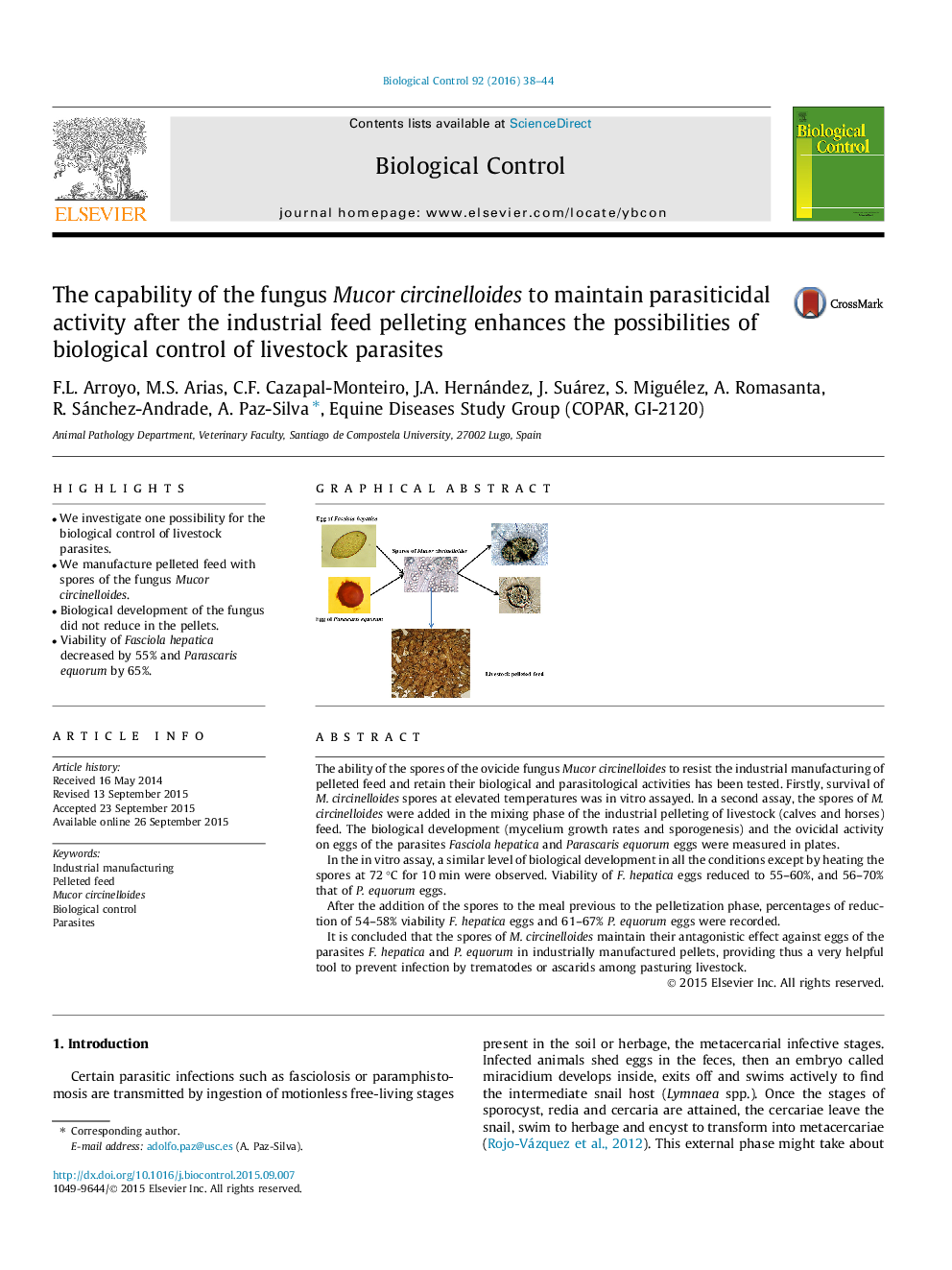| Article ID | Journal | Published Year | Pages | File Type |
|---|---|---|---|---|
| 4503704 | Biological Control | 2016 | 7 Pages |
•We investigate one possibility for the biological control of livestock parasites.•We manufacture pelleted feed with spores of the fungus Mucor circinelloides.•Biological development of the fungus did not reduce in the pellets.•Viability of Fasciola hepatica decreased by 55% and Parascaris equorum by 65%.
The ability of the spores of the ovicide fungus Mucor circinelloides to resist the industrial manufacturing of pelleted feed and retain their biological and parasitological activities has been tested. Firstly, survival of M. circinelloides spores at elevated temperatures was in vitro assayed. In a second assay, the spores of M. circinelloides were added in the mixing phase of the industrial pelleting of livestock (calves and horses) feed. The biological development (mycelium growth rates and sporogenesis) and the ovicidal activity on eggs of the parasites Fasciola hepatica and Parascaris equorum eggs were measured in plates.In the in vitro assay, a similar level of biological development in all the conditions except by heating the spores at 72 °C for 10 min were observed. Viability of F. hepatica eggs reduced to 55–60%, and 56–70% that of P. equorum eggs.After the addition of the spores to the meal previous to the pelletization phase, percentages of reduction of 54–58% viability F. hepatica eggs and 61–67% P. equorum eggs were recorded.It is concluded that the spores of M. circinelloides maintain their antagonistic effect against eggs of the parasites F. hepatica and P. equorum in industrially manufactured pellets, providing thus a very helpful tool to prevent infection by trematodes or ascarids among pasturing livestock.
Graphical abstractFigure optionsDownload full-size imageDownload as PowerPoint slide
